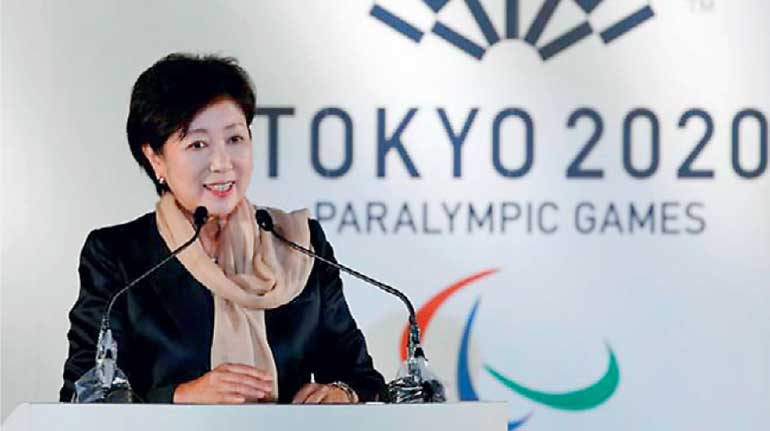Thursday Feb 26, 2026
Thursday Feb 26, 2026
Thursday, 13 October 2016 00:17 - - {{hitsCtrl.values.hits}}
REUTERS: Tokyo’s Governor said on Wednesday that now was the last chance to take steps to rein in soaring costs for the city’s 2020 Olympics, projected to cost 3 trillion yen (23.65 billion pounds) – over four times higher than planned.
Gov. Yuriko Koike, who took office in August, ordered a review of Olympic expenses that last month recommended changing three venues to save money, a move criticised by both the Tokyo 2020 Organising Committee and international sports officials.
In an interview with Reuters, Koike said the proposed changes - which include moving rowing and canoeing some 400 km (250 miles) north of Tokyo – remain on the table to ensure that the Games don’t leave a legacy of debt.
“As the Games approach, costs will rise even more than now,” she said. “As choices disappear, we will be asked to pay still more. Now is our last chance.” In its bid, Tokyo estimated costs at 734 billion yen and said they would bring in 3 trillion yen of economic benefits as well as create 150,000 jobs.

Tokyo Governor Yuriko Koike delivers a speech during the Olympic and Paralympic flag-raising ceremony at Tokyo Metropolitan Government Building in Tokyo, Japan, September 21, 2016 – Reuters
It also said some 85% of the venues would be within 8 km (5 miles) of the athletes’ village, a promise Koike said had become difficult to keep without burdening Tokyo, a city of 13 million with a similar budget to Sweden.
“Without limits, the analysis was that costs would rise close to 3 trillion yen,” she said, declining to give a specific budget cap besides “whatever we can at this point”.
For now, the city is zeroing in on three of the most expensive venues – for volleyball, swimming and rowing/canoeing – although Koike noted the budget review was ongoing.
“Scrutiny and review of all the venues has yet to be completed, so we must await that analysis while remaining in contact with the International Olympic Committee (IOC) and the individual sports federations,” she said.
“Based on that, we will make our final decision.”
Koike said she would explain Tokyo’s position when she meets with IOC President Thomas Bach next week.
Tokyo won its bid to host the Games largely on its reputation for efficiency, but the organizers have dealt with a series of embarrassing setbacks, including scrapping the initial stadium design because it was too expensive and redesigning the logo amid plagiarism accusations.
There were also allegations that the bid team made illegal payments of over $ 2 million to a Singapore bank account linked to the son of disgraced former international athletics chief Lamine Diack, but Tokyo said the payments were legitimate and the IOC said it saw no reason to doubt Tokyo’s word.
Koike said, however, that changing the venues at this stage would not further damage Tokyo’s image.
“Rather, rising costs up to now could make it seem as if Tokyo is a very expensive place, which I think would be even more negative,” she said.
Koike, a long-time parliamentarian who served as Japan’s first female defense minister as well as environment minister, and has long been seen as having ambitions to become prime minister.
But when asked whether she had such goals, Koike said her hands were full after having become governor two months ago.